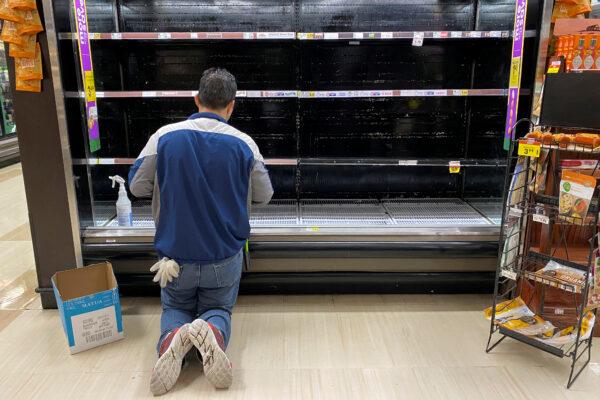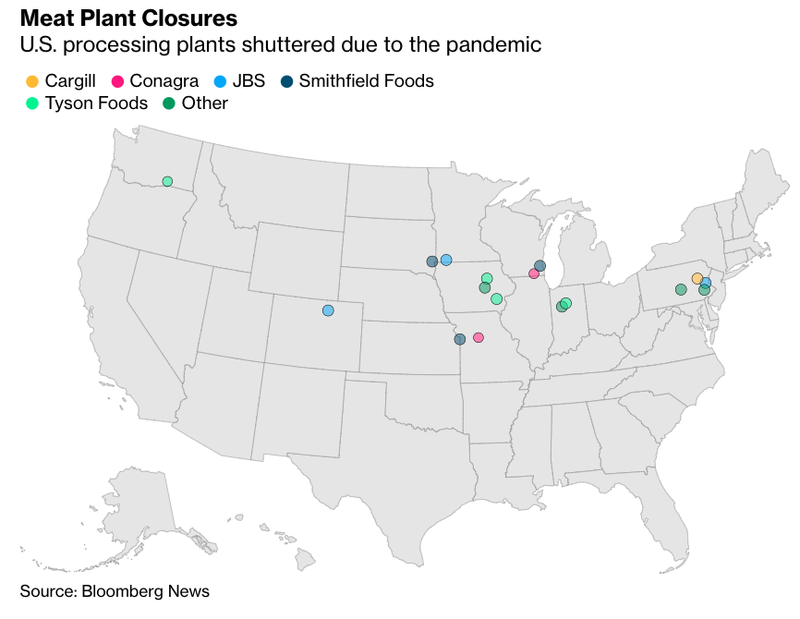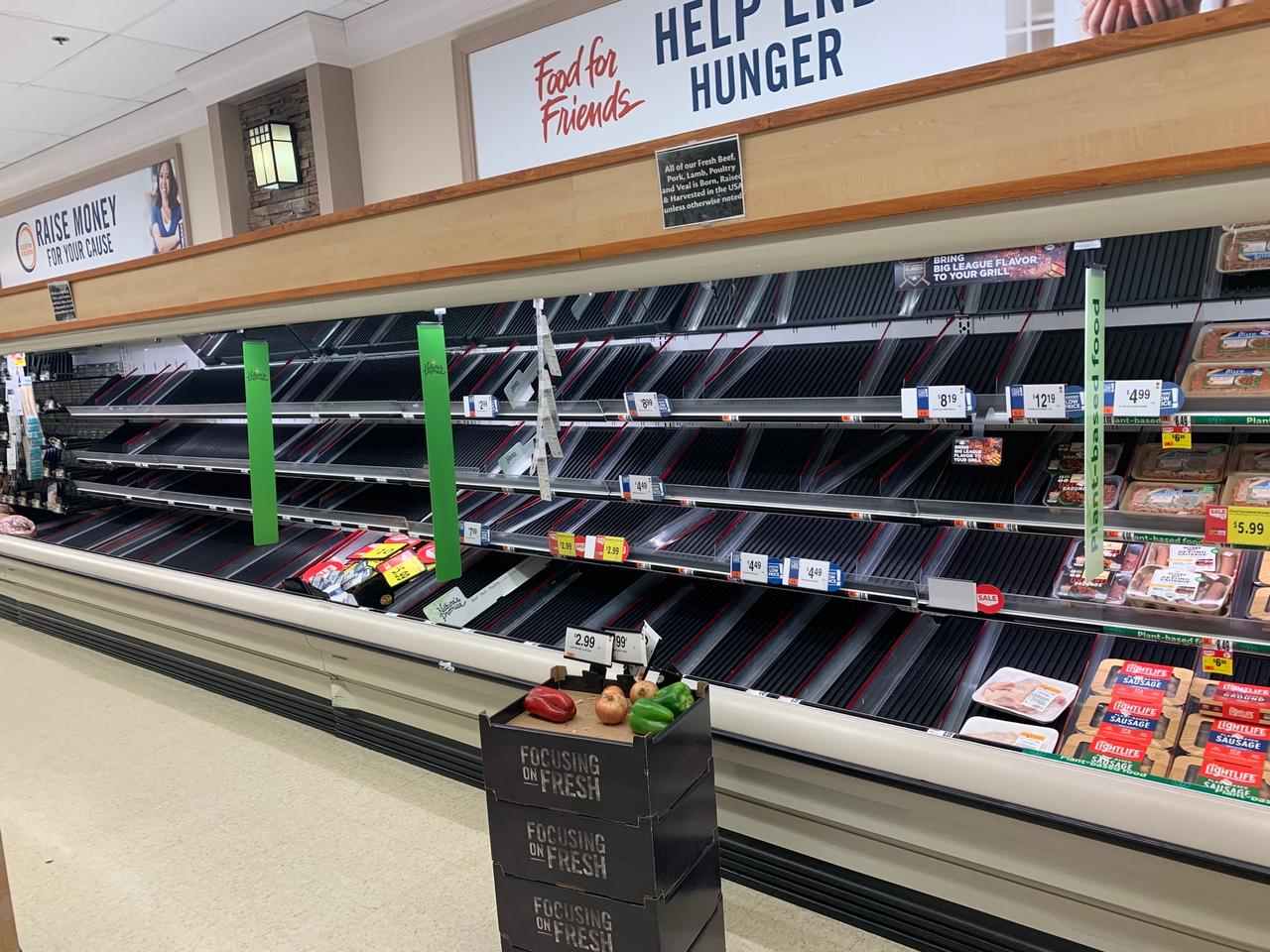From bank run to bacon run.
In an ominous confirmation of the just published article “Why The Meat Shortages Are Going To Be Much Worse Than Most Americans Are Anticipating“, the slowdown at meat processing plants from the coronavirus outbreak has led to a wave of panic-shopping at supermarkets, and some grocery stores are now imposing limits on meat purchases.
In a Friday email, supermarket chain Kroger said that it has put “purchase limits” on ground beef and fresh pork at some of its stores following growing concerns over meat shortages due to coronavirus-induced supply disruptions. Other large grocers say they expect to be out of stock on different types of cuts soon.
The world’s biggest meat companies, including Smithfield Foods, Cargill, Conagra, JBS and Tyson Foods have halted operations at about 20 slaughterhouses and processing plants in North America as workers fall ill, stoking global fears of a meat shortage.
The United Food and Commercial Workers International Union estimated on April 28 that 20 meatpacking and food processing workers have died so far, and just today at least 180 workers tested positive for the virus at a Tyson plant in Washington. The union said last week the closures have resulted in a 25% reduction in pork slaughter capacity and a 10 percent reduction in beef slaughter, the Epoch Times reported.
Earlier this week, President Trump signed an executive order compelling meat plants to stay open during the crisis, which however was met with stiff resistance by labor unions, due to the lack of proper health standards at the plants.
Adding to the challenge, meat sales are up around 40% on recent weeks, according to data from grocery industry trade group FMI. “The demand for product also makes it difficult to keep the store shelves stocked as they were at pre-pandemic levels,” said a group spokesperson.
While grocers don’t expect meat shortages – yet – they say they are adjusting to the spike in demand and the difficulties securing supply, similar to McDonalds which said on Thursday it had started to ration meet amid supply chain “concerns.”
“We feel good about our ability to maintain a broad assortment of meat and seafood for our customers because we purchase protein from a diverse network of suppliers,” said a Kroger representative. “There is plenty of protein in the supply chain. However, some processors are experiencing challenges.”
A spokesperson for Wegman’s said, “we may not have every product cut or variety available for the next few weeks,” but the company does not anticipate any shortages. We’ll check back in a few weeks to see if the shortages have begun.
The slowdown is also hitting smaller chains: New York City grocery chain Morton Williams’ co-owner Avi Kaner said the “most severe shortages have been with packaged cold cuts,” because consumers want pre-packaged items right now instead of meat from the deli counter. “Beef prices have increased the most, followed less so by pork and poultry.”

At Karns Food in Pennsylvania, the chain has put limits on ground beef and some fresh chicken. “We do anticipate periodic out of stocks and higher prices in the coming weeks,” said Andrea Karns, a representative of Karns Food in Pennsylvania.
While meat may be harder to find, Karns is using the shortage as an opportunity to expand its seafood selection, including fresh lobsters from Maine and Maryland crabs. Now if only the vast majority of America’s population which hasn’t worked in over a month could afford lobsters and crabs…

